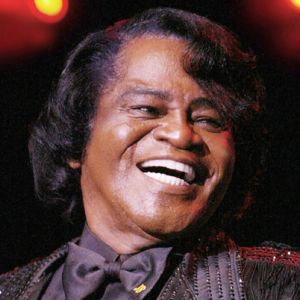Music |
James Brown
By
Published: Jul 31, 2014
Category:
Soul
James Brown really was “the hardest-working man in show business.” In his early 70s, he was still playing as many as 300 concert dates a year — and he wouldn’t have missed the Christmas toy giveaway he sponsored in Augusta, Georgia. The following day, he saw a dentist, who sent him to a doctor, who sent him to the hospital. Whatever ailed him didn’t seem life-threatening; after canceling a few mid-week performances, his doctor said it was fine for him to fly north for a show in New Jersey and another, at B.B. King’s nightclub in New York, on New Year’s Eve.
Instead, James Brown died.
The music business lives on hype; even a flash-in-the-pan gets called an “artist.” For “The Godfather of Soul,” there was no hype, only understatement. He was the Shakespeare of American pop music of the last half century. Without him, there would be no Mick Jagger, no Michael Jackson, no Prince. There would be no funk, no disco, no Afro-Pop. And, for sure, there would have been much less fun. [Which fun to get? To buy “20 All Time Greatest Hits” from Amazon, click here. For the best bargain — the CD of “Live at the Apollo, 1962” comes with a free MP3 download — click here. A close second is “Love Power Peace: Live at the Olympia, Paris 1971; to buy it, click here.]
He came onstage in tight pants, eye make-up and pomped hair. (He had two hairdressers, 150 suits, 80 pairs of shoes.) He wrote the songs. He was the choreographer. And he was a drill sergeant of a bandleader, who never hesitated to belittle — and fine — a musician who violated the dress code or blew an off-beat.
The band was legendary, but the spotlight was on Brown. Not his lyrics. Many of his songs were gibberish; their message was sex, and how better did you communicate that than grunting and shouting? His intent was to make you crazy — he didn’t care to prove he was all man if he could demonstrate that he was all showman.
So he would do splits. He’d shimmy. He’d shove the microphone away and catch it on the rebound. He’d fall to the ground and crawl. And when his handlers would come out to wrap him in a robe and lead him off-stage, he’d fling it off and fight his way back to center stage to deliver, sobbing, several more choruses.
He was never off-duty. In prison — he got a six-year jail sentence in 1988 when, shotgun in hand, he ran into a business meeting, enraged, and then led police on a hundred mile-an-hour car chase — he was the lead singer and director of the choir. Attendance zoomed. “I had the gospel group doing routines!” he bragged. “I had them so sharp that the inmates wanted to get their autographs."
“Sharp” is the word I’d use to describe James Brown’s music. It was completely original and totally polished — what you heard had been worked on until it gleamed. From “Please, Please, Please” in 1966 right to the end, his career is a steady accretion of milestones:
Add them all up, and you get perhaps a hundred million records sold. And that was mostly before videos and the Internet. “Say it loud — I’m black and I’m proud,” he sang. Truly.
BONUS
David Remnick wrote a terrific piece about Brown’s appearance at the 1964 T.A.M.I. show. Read it here. And here it is.


